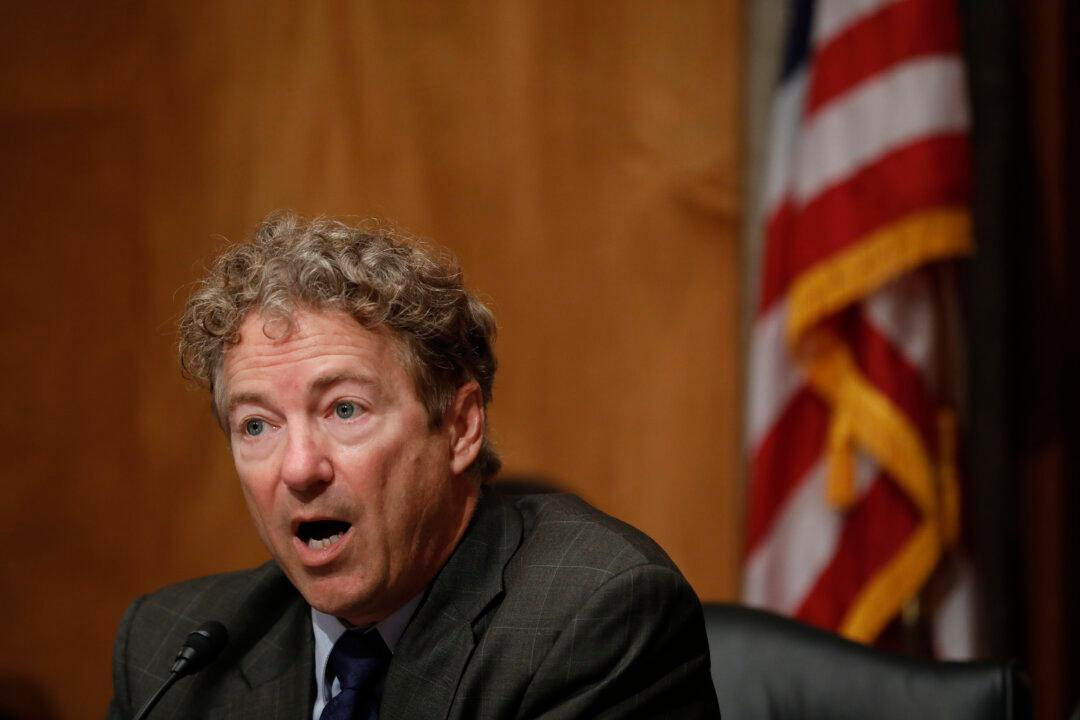Sen. Rand Paul has defended President Donald Trump’s meeting and press conference with Russian President Vladimir Putin, in an interview on July 17.
Paul (R-Ky.) is among only a handful of Republican lawmakers who side with the president, amid an avalanche of negative news coverage and criticism from both sides of the aisle. A staunch advocate of nonintervention, Paul told CBS’s “This Morning” that meeting with foreign adversaries should be “lauded and not belittled.”





